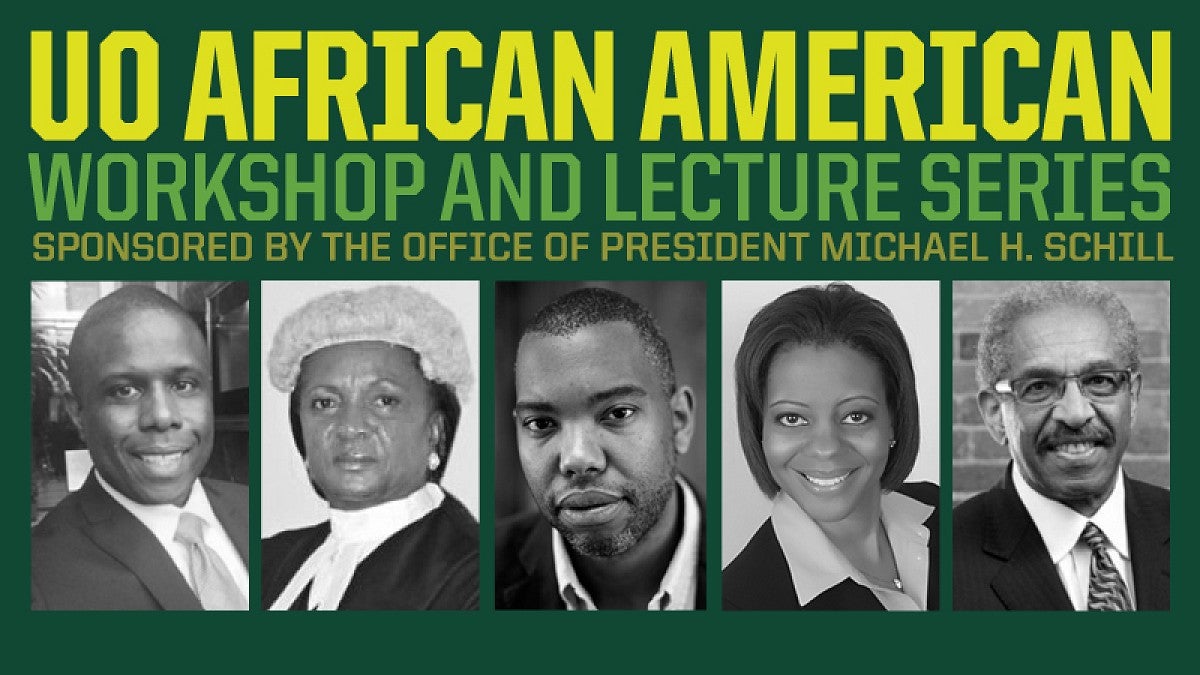A national expert in reforming undergraduate education in the areas of science, technology, engineering and math will kick off the University of Oregon’s African American Workshop and Speaker Series with a visit to campus in October.
Kelly Mack, a professor of biology and former senior program director of the National Science Foundation’s ADVANCE program, is one of five African-American speakers scheduled to hold workshops, town hall meetings or training at the UO fall and winter term. Mack is the vice president for undergraduate STEM education at the Association of American Colleges & Universities and executive director of Project Kaleidoscope, a nonprofit organization focusing on undergraduate STEM education reform. STEM is shorthand for science, technology, engineering and math.
RELATED LINKS
Trustees accept president’s proposal, dename Dunn Hall
Black Greek-letter groups assess new campus chapters
New academic community helps unite black UO students
President outlines process for reviewing building names
UO taking action on African-American student issues
Additional speakers include Ta-Nehisi Coates, the author of “Between the World and Me” and winner of the 2015 National Book Award for nonfiction; George Zeno, the chief philanthropy officer at University of California, Berkeley; Lady Georgina Theodora Wood, Ghana’s first female Supreme Court chief justice; and Benjamin Reese, an expert on implicit bias and the vice president for equity and inclusion at Duke University.
The speakers series is one of the initiatives announced by President Michael H. Schill to enhance diversity and inclusion at the UO in response to a list of demands made by the Black Student Task Force in December.
The Office of the President is sponsoring the series. Schill is asking university leadership, faculty, staff and students, as well as community members and alumni, to attend the sessions and come ready for interesting and vigorous conversations.
“My hope is that by inviting these national experts to campus we are able to promote discussion, facilitate debate and catalyze transformation,” Schill said. “The ultimate goal is to improve our recruitment and retention of African-American students, faculty and staff, which will improve the quality of our research, education and student experience.”
The series is being arranged by the Division of Equity and Inclusion. Vice President for Equity and Inclusion Yvette Alex-Assensoh said the series is focused on connecting national experts with UO thought leaders and change agents.
“It is focused on helping our campus to better understand the most promising practices in this area and utilizing their expertise to institutionalize more effective environments, practices and policies,” Alex-Assensoh said. “While some of the speakers will deliver large campus addresses, many of them will work with smaller groups of our campus community, including advisors, deans, student leaders, faculty, staff, vice presidents and supervisors, to raise awareness, hone existing practices and, in some instances, develop new skills.”
The five sessions currently planned are listed below with their descriptions. Additional sessions and performances may be scheduled for spring term. Times, locations and additional information about of each event are available on the Division of Equity and Inclusion website.
Envisioning, Attaining and Institutionalizing Diversity in STEM Education and Research, Oct. 17-18:
Kelly Mack, vice president of the Association of American Colleges & Universities’ national project to reform undergraduate STEM education, will host a town hall meeting with faculty, community partners, staff and students on the most promising practices for engaging faculty, undergraduate and graduate students in STEM education and professions. She will also meet with leaders who are responsible for faculty development to share tactics and strategies for persistence among women, African-Americans and other minorities in higher education.
Show Me The Money: The Changing Landscape of Diversity in American Philanthropy, Nov. 8:
George Zeno, chief philanthropy officer at the University of California, Berkeley, has successfully helped raise millions of dollars in funding at University of Washington and now at Berkeley. On campus, he will meet with development officers, deans, students and prospective donors to ensure that the UO is not just effectively fundraising, but also that fundraising opportunities are as inclusive as possible.
Transforming Our Judiciary, Changing Our World, Oct. 31-Nov. 3:
Ghana’s first female Supreme Court Chief Justice Lady Georgina Theodora Wood is a leading force in societal transformation and change. She will visit the UO campus to talk about the judicial reform she has catalyzed in Ghana and other parts of Africa as well as her focus on alternative dispute resolution.
A Deeper Black: Race in America, Feb. 3, 2017:
Ta-Nehisi Coates is the author of “Between the World and Me” and winner of the 2015 National Book Award for nonfiction. Coates is the 2017 Ruhl Lecturer at the UO School of Journalism and Communication. Incoming UO freshmen are reading and discussing the book over the course of the coming school year as part of the 2016-17 UO Common Reading book selection. Coates’ lecture is titled “A Deeper Black: Race in America” and will tackle the systemic racism and racist policies that have been inseparable from the growth of the nation.
Empowered To Lead: Best Practices for Enhancing Campus Climate, date TBA:
Benjamin Reese, vice president for equity and inclusion at Duke University, has more than 40 years of experience in organizational change, cross-cultural development and conflict resolution. He will deliver workshops and engage with the campus during a community forum. The workshops will focus on how to overcome implicit bias in the evaluation of job candidates, performance evaluation and student advising processes. In each of the workshops, participants will learn about the specific manifestations of implicit bias and how to counteract them in ways that lead to increased faculty as well as staff diversity and better outcomes for selecting and engaging students.


